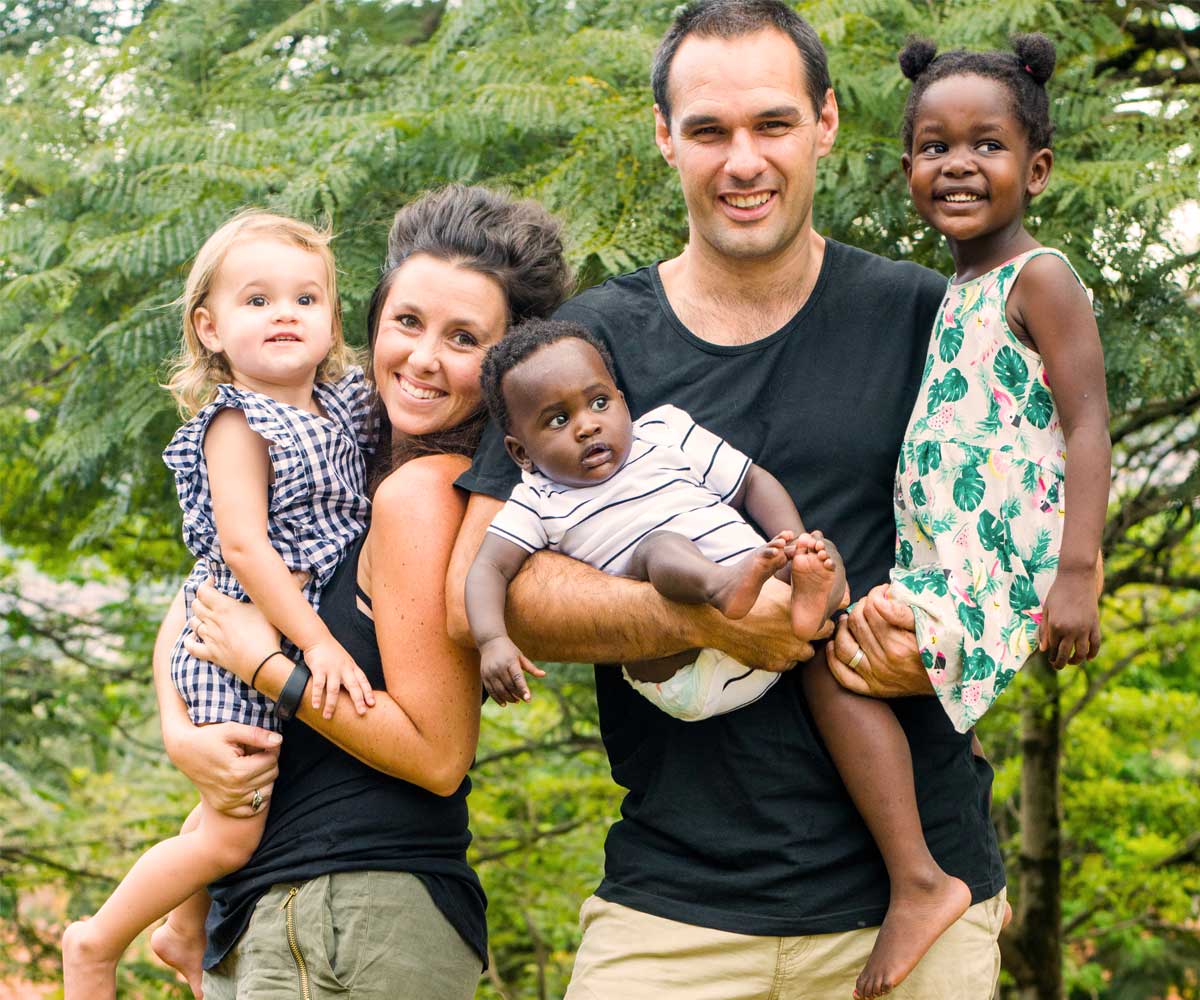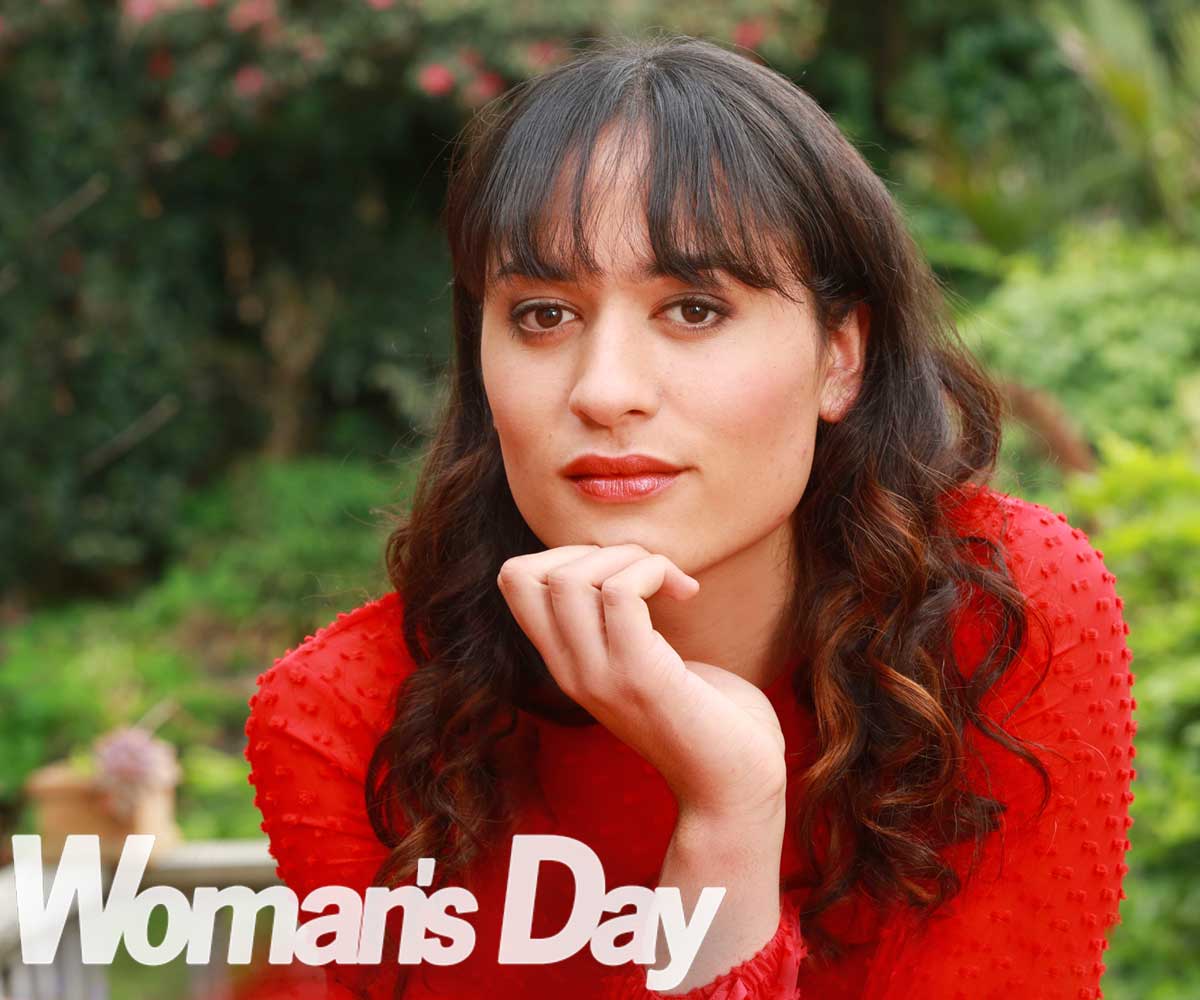After eight years in the field, humanitarian photographer Helen Manson has learned how to compartmentalise her emotions when on the ground in former war zones or refugee camps.
But, inevitably, there’s always a moment or two that pierces her resilience. Such as on a trip to photograph the unfolding crisis in Congo, when four young unaccompanied children turned up – the oldest was 12, the youngest looked around six. They were dressed in matching T-shirts, Helen recalls, and it really hit home.
“I just lost it, because I sometimes dress my kids in matching clothes and I remember thinking, ‘Your mum obviously loves you like I love my girls, and now you’ve lost your mummy and daddy, and what is life going to look like for you here?”
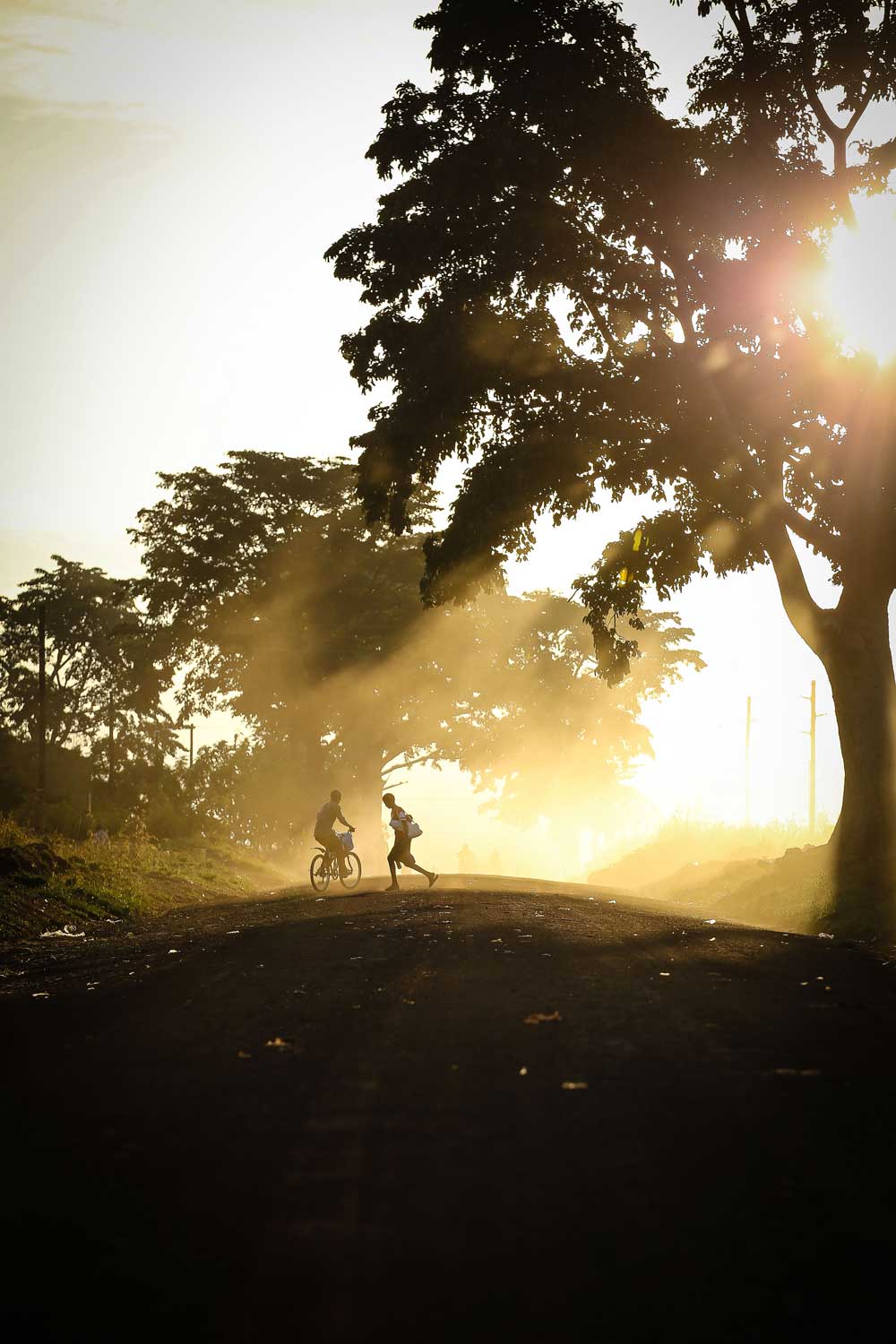
Sunset on the outskirts of Adjumani Refugee Settlement, home to hundreds of thousands South Sudanese.
Two 30-something Kiwis living in Uganda might sound a bit out of the ordinary, but for Helen and her husband Tim – who now have three children, Hope, four, Eva, two, and son Maz, one – it’s the life they always wanted. Working in Africa and adopting children have been of great importance to the couple since early on in their love story.
Tim was born in New Zealand but from age five to 15 he lived with his parents in the Ivory Coast, where they were doing missionary work. And Helen – whose family also lived away from New Zealand for the same length of time – had wanted to adopt children of her own ever since she was a child. “So here we find ourselves, living in Uganda, having adopted two children,” she laughs. “Both of us got what we were looking for!”
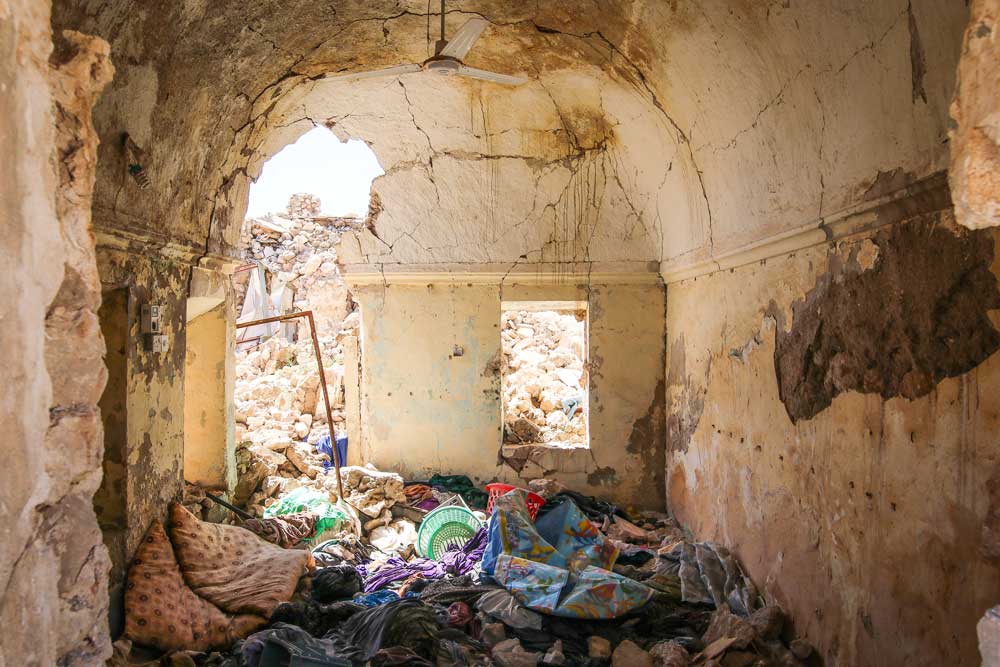
On a Skype call from the family’s home in Kampala, with the video turned off to help ensure a stronger connection, Helen, 33, sounds cheerful, funny – and a little tired, but as the mother of three small children, and up at 6am to make the time difference work for this chat, that’s understandable.
However, don’t let the sunny demeanour belie the reality that her work is very, very hard. She’s recently completed an assignment to raise awareness of child slavery in Lake Volta in Ghana, and two weeks after we speak, she’ll be heading to a refugee camp in Bangladesh to photograph people displaced by the Rohingya crisis – with more than one million people living in a 10sq km settlement, it’s currently the biggest refugee camp in the world.
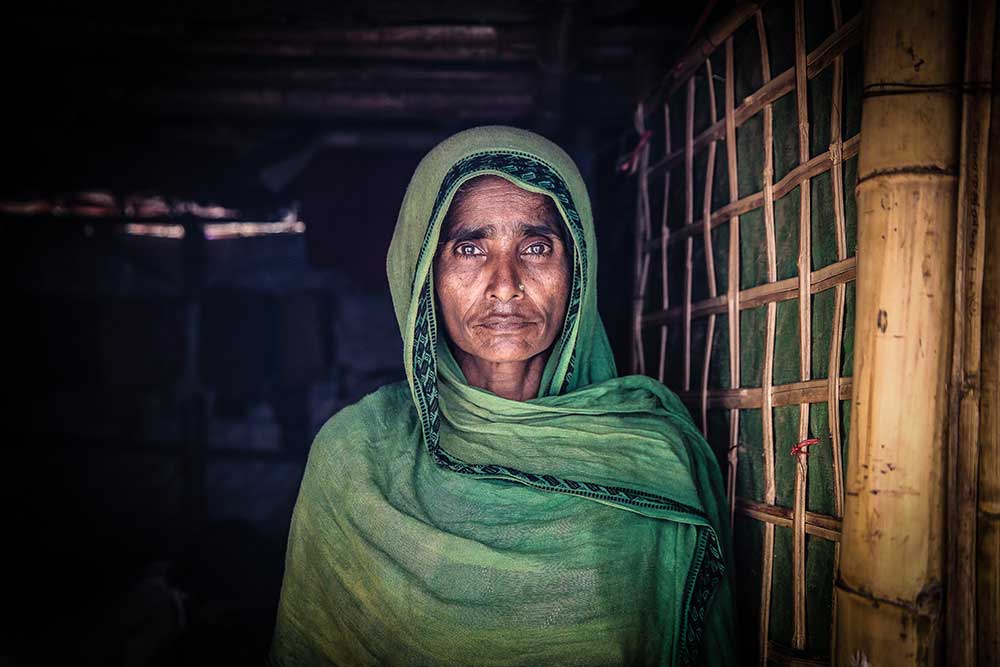
Her job requires being in the thick of it all, seeing the worst of what humans can do to each other – gang rape, torture, the killing of women and children – and trying to capture it in a way outsiders can understand.
“There are often tears just rolling down my face as I take photos and hear people’s stories, because it’s so awful to have to see that stuff, but I know it’s a story that needs to be told,” she says. “I’m a human, I’m a mum, I’m a daughter, I’m a wife – I see these things like most Kiwi women would see them. I don’t have a heart of stone; in fact, the opposite – my heart is so soft!”
Before Uganda, Helen had trained in fashion and music public relations, working for high-profile firms in Auckland and then later on in Dubai, where she and Tim lived for a year. But when the pair first moved to Uganda in 2014, there were two crucial moments that sent Helen on her path to becoming a full-time humanitarian photographer.
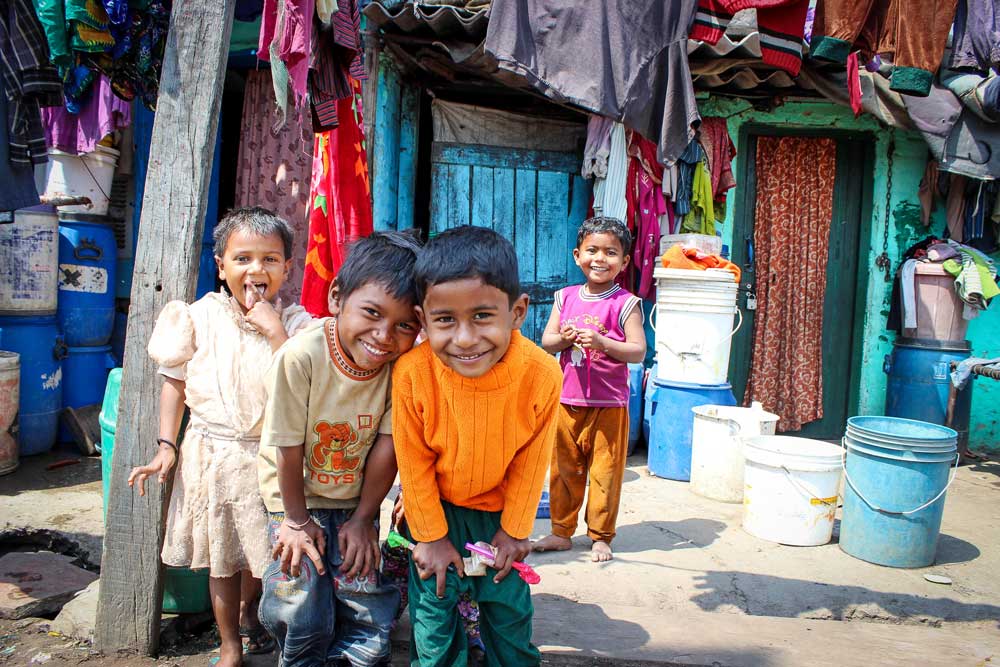
The first of these was meeting her Tearfund sponsor child in person, after more than 10 years of donating, and seeing all her letters and photos kept in pride of place on the wall. The second, however, was more complicated.
While travelling on a bus one day, Helen sat next to a young boy and they started chatting.
“We shared an apple, and he was just this lovely kid, so I ended up inviting him round for dinner, and we got to know him well. On about the third night of him coming round, he mentioned how he used to be a child soldier. And all of a sudden, all that stuff that I was too scared to read about or watch a movie about became real; flesh and blood, sitting in my kitchen, eating the spaghetti I’d made.”
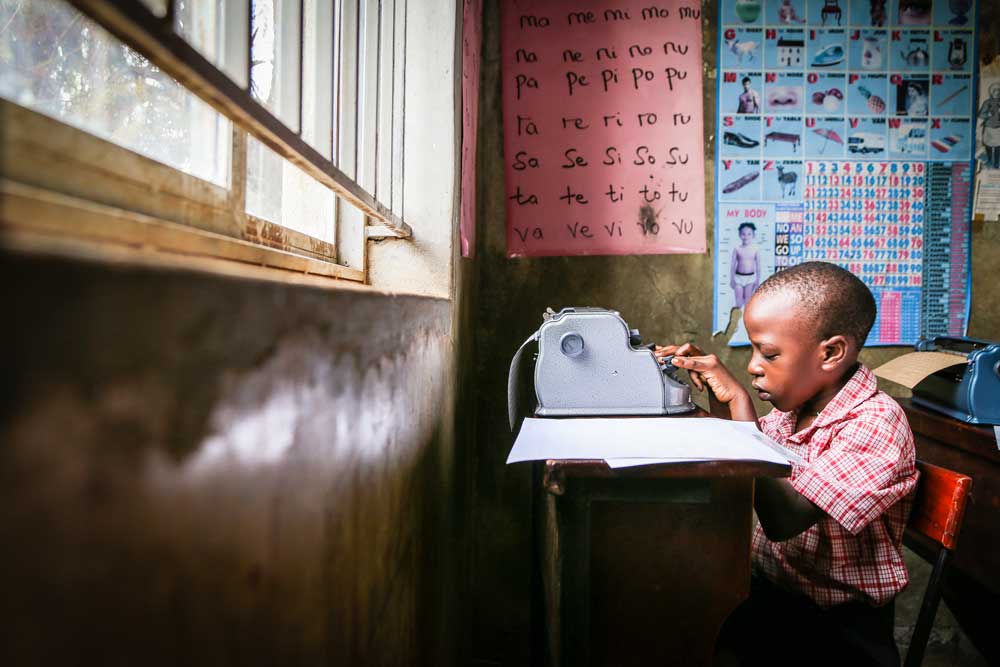
Wanting to learn more, Helen started volunteering with Tearfund, a New Zealand-based aid and development organisation that works in Africa, Asia and South America. After a year, she became their communications manager.
But as her photography work became more well-known, she was approached by a variety of organisations and became a full-time humanitarian photographer three years ago. She now works for the likes of World Vision, International Justice Mission and Compassion, going to some of the world’s most complex and poor areas, to give a human face to the crises occurring there.
“When you sit down with somebody in their mud hut, and you hold their hand as they bawl their eyes out and tell you their story, or you walk into a medical clinic and you find a baby that’s been abandoned, or you see a mum giving birth on the floor of a makeshift tent… I’m often swearing under my breath, if I’m honest, because it is so overwhelming at times,” she says.
“But my goal is always to try and capture the people I work with in the most dignified way. I’m not looking to win any awards for these photos, I’m just looking to tell a truthful story that shows the incredible resilience of people – and the beauty and pain amongst that.”
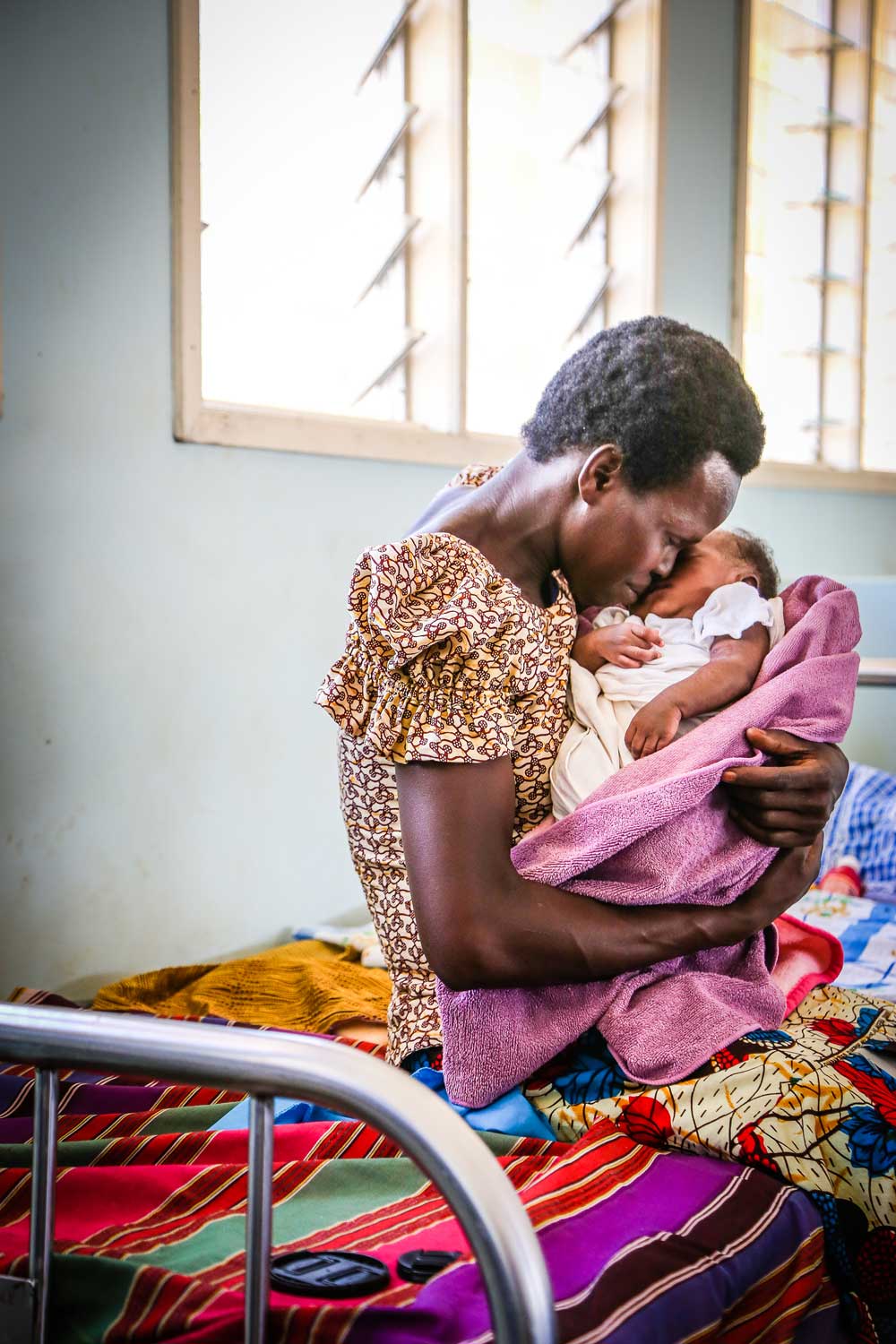
Over the years, Helen has been asked to photograph the full roll call of crimes against humanity; she was in Mosul, Iraq, last year, when it was still a very recent war zone – so recent, in fact, the location Helen was in was bombed just seven hours after she left. The Islamic State had just been forced out of the area and Helen recalls the destruction left behind was pure, unadulterated horror.
“It completely takes your breath away – I have photos from inside the war zone and it’s just gratuitous violence; they didn’t just pop a bomb inside a building, they annihilated them. It’s not just five bullet holes in the side of a building or house, it’s 500.”
Shooting photos there for trauma care organisation Tutapona and MedAir, Helen says it’s one of the few times she’s felt afraid while working. “Usually I don’t really feel much fear going into places, I just feel a great, prayerful sense of anticipation. I’m praying to God, ‘Please let me see these people how you see them… please help me bring the story to life in a way that’s truthful and shows the work the not-for-profit is doing here.”
Both Helen and Tim are Christian, and come from families that worked in service through the church.
“My faith is a huge motivating factor for why I’m here, and I would even go as far as to say the reason I’m here is because it’s so real to both of us. It’s what motivates me to keep going, to do this work, and the more I do it, the more my passion is fuelled to run even faster and harder and longer. I just feel like there’s so much going on in our planet right now, this is no time to sit on the sidelines.”
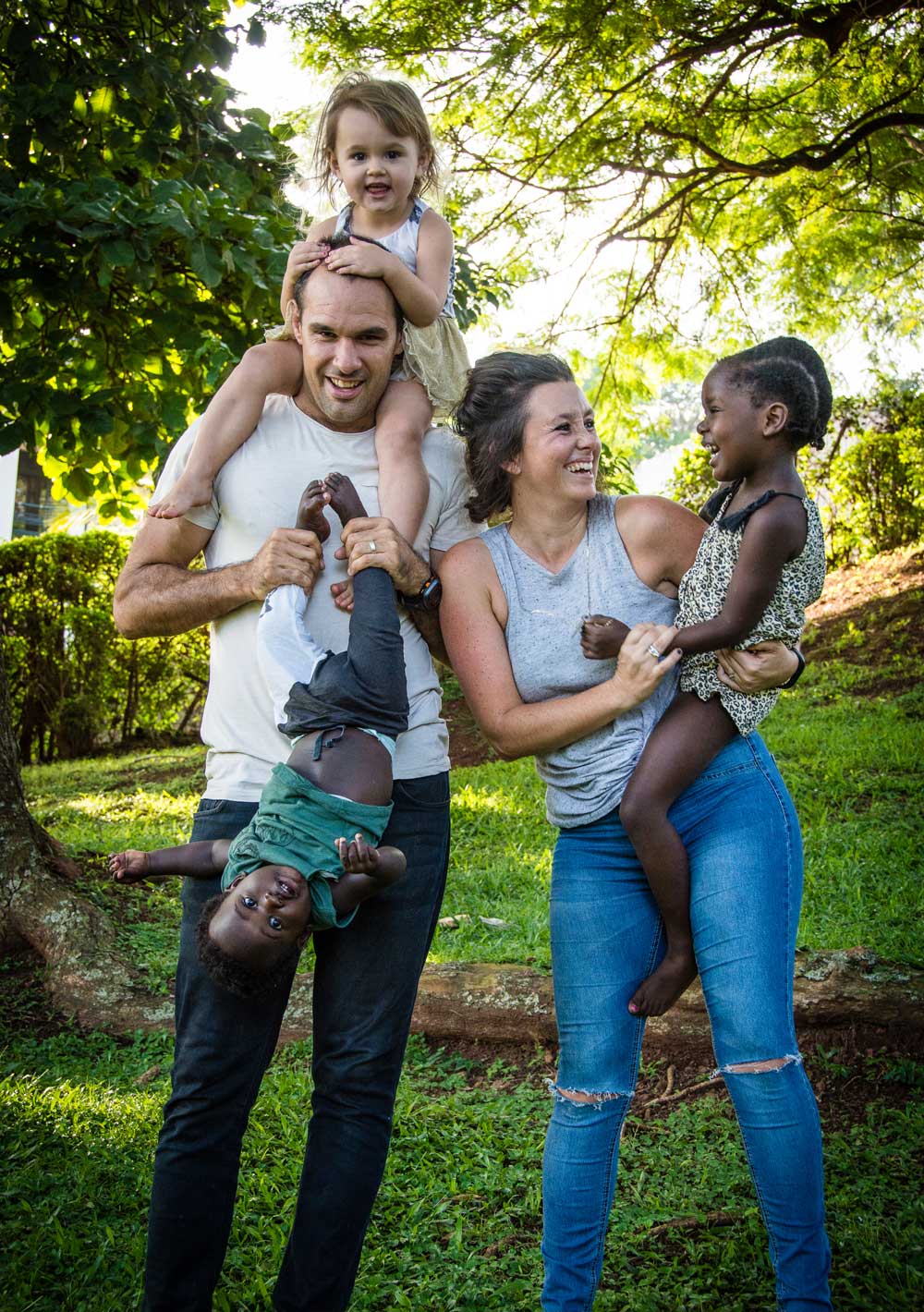
Tim and Helen with, from left Maz, Eva and Hope.
The couple are well-matched in their work, as well as their faith. Tim, a former teacher, works as the country director for an organisation that does trauma counselling for refugees and victims of war, “so he is no stranger to the worst things humanity can spit up… you cannot scare this guy.” Helen lists some of the things he’s had to help people through and many are, frankly, unprintable.
Both Tim and Helen have developed – through trial and error – coping strategies to help them stay sane with the work they do. Helen talks to a therapist back home in New Zealand: “She’ll ask me questions like, ‘What was the hardest thing you saw on this trip? What gave you hope?'”
They also often Skype their respective parents in New Zealand, filling them in on what they can. Helen says her parents are extremely supportive of her work and like to be as informed as possible about the places she’s going.
“Mum is the kind of person who, when I tell her I’m going on a trip, she’ll go to the library and get a book out. And my dad likes to track my iPhone!”
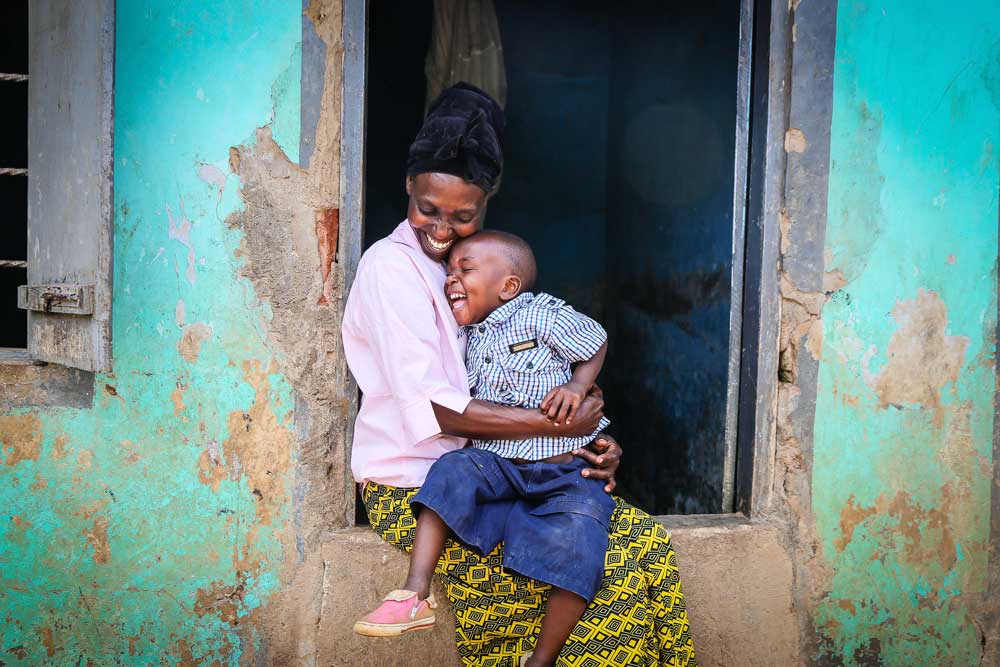
Having a family – and having it arrive quickly – has forced both Helen and Tim to embrace a work/life balance that they admit had been lacking beforehand. “I consider it to be the biggest privilege of my life – next to being a mum – to do this job,” Helen says.
“So I don’t like to turn work down. But I also have to marry this insatiable desire to be in the field with the desire my children have to have a mama that’s available emotionally and physically.” She gives credit to “Jaja”, their house helper, who lives with them and acts as a surrogate grandmother to their children. “Her kids are all grown up, so she stands in the gap while I’m out of town.”
In the past three years, Helen and Tim have gone from having no kids to three, which is, as you might imagine, a serious adjustment. There’s an adage that says going from one child to two children is like going from owning a pet to running a zoo.
Helen laughs and responds with “Having three children under four is like swimming in a pool and you start drowning – and then someone hands you a baby.”
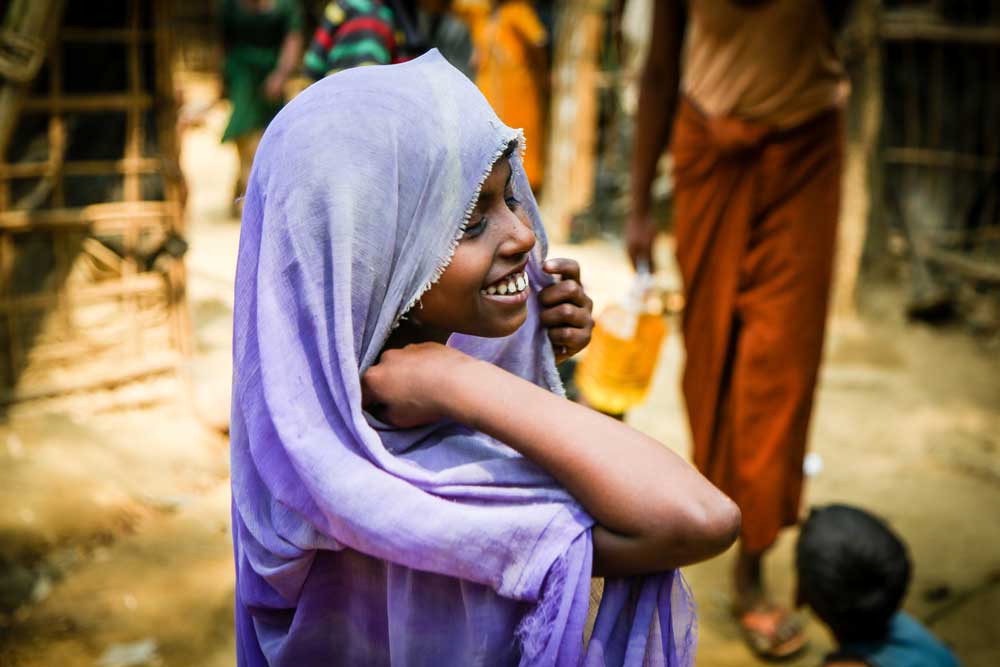
Back in 2014, the couple decided to begin the adoption process. When the call about a child came, Helen and Tim were given just nine minutes warning to prepare for the arrival of their first daughter.
“We were on our way up to South Sudan with five psychologists and we got a phone call about a little baby and whether we would like to do some emergency foster care,” Helen recalls. “I didn’t know if this would end up being a forever thing or a two-day thing.”
Hope was just six days old when they took her home, but the adoption wasn’t finalised for another three years, due to the overly complicated Ugandan laws (which have since changed). Waiting to find out if Hope would stay with them was, Helen says, “the worst season of my entire life because it was so freaking stressful.”
Then in 2016, Helen gave birth to Eva. The family came back to New Zealand for her arrival and the first three months of Eva’s life, until she got her immunisations. Finally, in September last year, they adopted Maz, who’s just turned one.
All three children are adapting well to each other, even if Eva is sweetly confused about her own status. “She thinks she’s adopted,” Helen laughs.
“She prays for her own adoption – and she identifies as African; she understands the language pretty well too.”
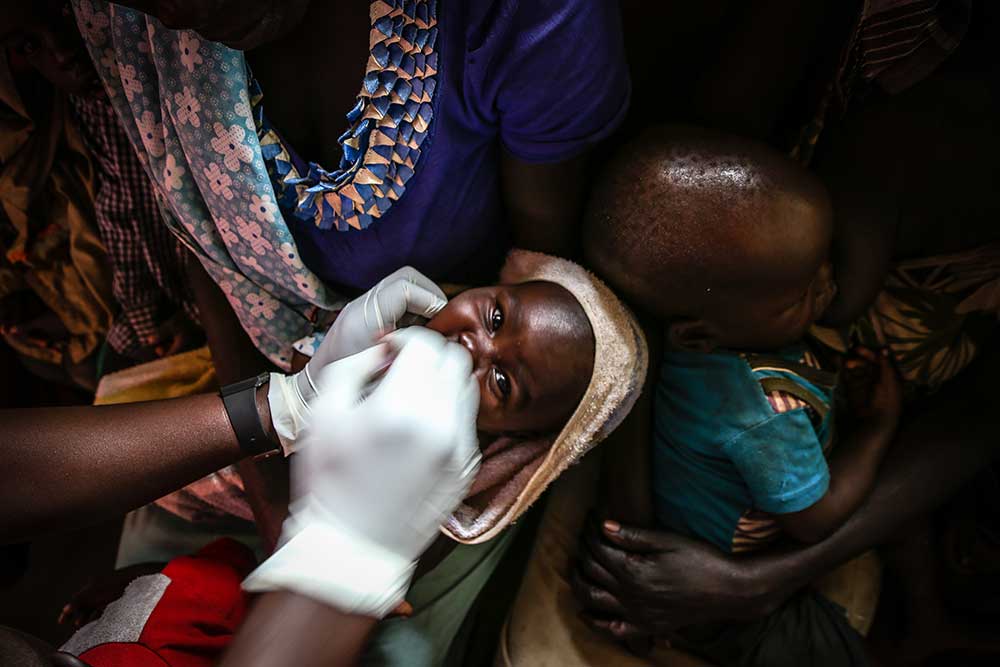
Their eldest children have some understanding of their parents’ complex work, and sometimes go along with Helen to day jobs where there will be other kids for them to play with.
“I want to teach my kids that the world doesn’t revolve around them; that Mummy and Daddy have work that we believe is really important and there are stories that need to be told, and we want to help tell them. I just want to raise kids who understand the bigger picture and know they have a role in that too.”
While there are vague plans to move to New Zealand for the children’s schooling at some stage, for now life in Uganda continues. Despite what she sees, despite the horrors of the places she’s been, Helen says her overall faith in humanity remains mostly unscathed.
“The more I get out, the more I realise these perpetrators are an extremely tiny percentage that are just wreaking mass havoc and leaving a trail of destruction in their path. And yes, sometimes it can make you feel like the world is going to hell in a hand basket,” she says.
“But then I see the resilience. The resilience of the human spirit is outrageous. And when I see that, I know there is hope – and the darkness will not win.”
